

Table of Contents

In today’s fast-moving world stress has become very common. Many people deal with long work hours, family pressure and many other problems every day. These situations make the mind tired and the body weak. I always tell my clients that your diet plays a powerful role in how you handle stress. What you eat can calm your mind and give your body strength to deal with pressure.
When you eat the right foods, you can support your mood, your energy and your mental health. Certain foods to eat to reduce stress can balance blood sugar, support brain function and improve serotonin levels. These foods also help the body stay steady during tough moments. In this blog I will share 11 simple and powerful foods you can eat to reduce stress and feel better from the inside.
Best Foods to Manage Stress
Before diving into the list of stress-busting foods, it’s important to note that incorporating the right nutrients into your diet can significantly impact how your body handles stress. Here are 11 of the best foods to manage stress effectively and promote a sense of calm and well-being.
Dark Chocolate

Dark chocolate is one of my favourite comfort foods. It tastes good and also helps reduce stress. It has flavonoids that lower cortisol which is a stress hormone. It also improves blood flow to the brain. When I eat a small piece of dark chocolate I feel a quick lift in my mood. This makes it a simple food that can help reduce stress in daily life.
Fatty Fish
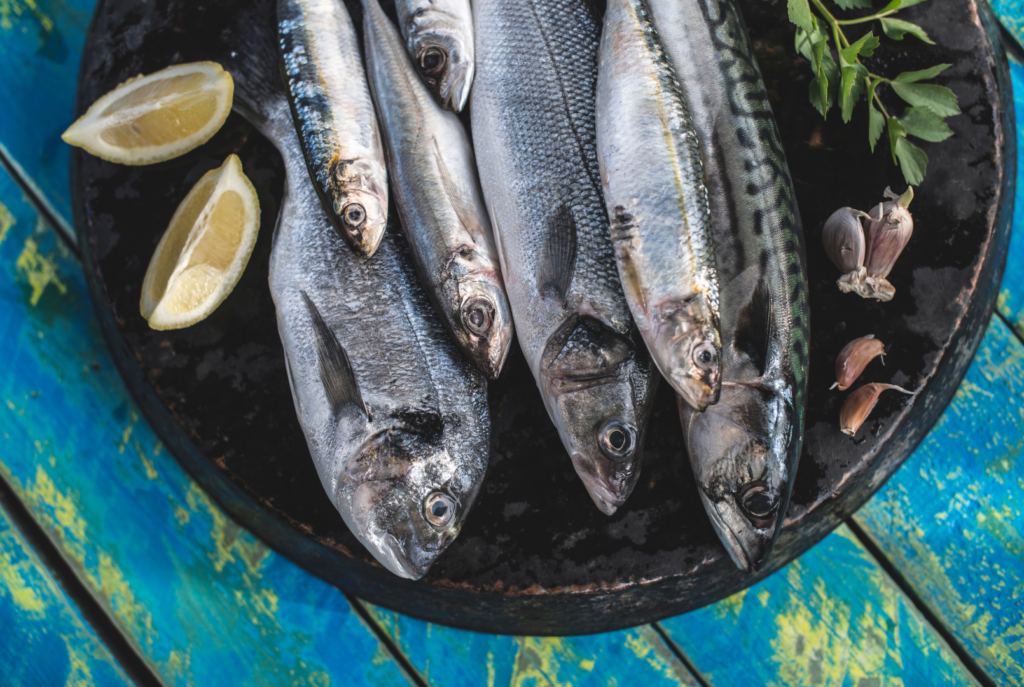
Fatty fish like salmon and mackerel are rich in omega 3 fats. These healthy fats are very good for your brain. They can help reduce anxiety and improve mood. I often suggest my clients include fatty fish at least two times a week. It supports brain health and helps the body stay calm during stressful days.

Avocados
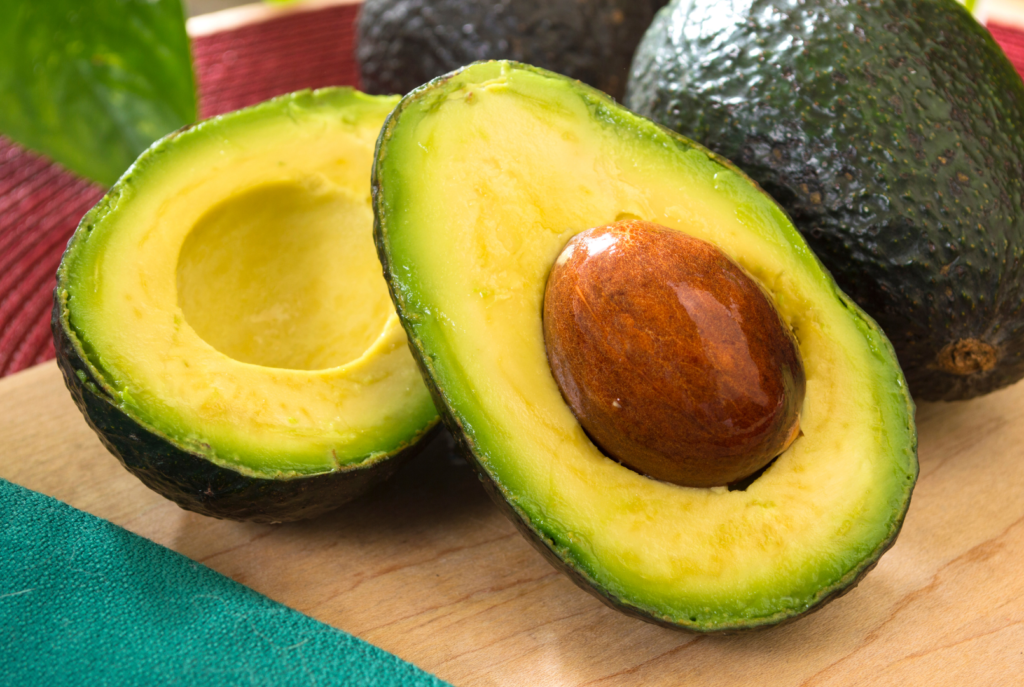
Avocados are creamy and full of healthy fats. They also have B vitamins and potassium which help the brain and the heart. These nutrients keep your mind steady. When I add avocados to my meals I feel more satisfied and mentally relaxed. They are one of the best foods to eat to reduce stress.
Nuts and Seeds
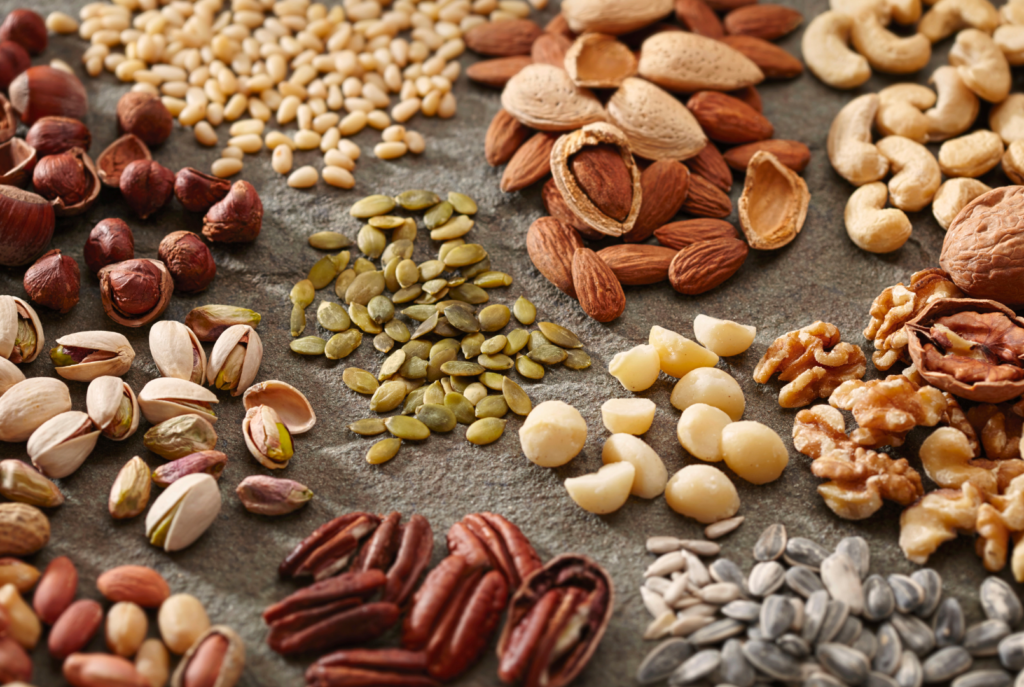
Nuts and seeds like almonds walnuts chia seeds and flaxseeds are rich in magnesium. Magnesium helps relax the muscles and calm the nervous system. When your magnesium levels are good your body handles stress much better. A handful of nuts can work like a natural stress relief snack.
Berries

Berries like blueberries and strawberries are packed with vitamin C and antioxidants. These nutrients protect the body from stress and lower cortisol levels. I enjoy berries in smoothies or as a snack. They give a fresh sweet taste and also support your mind during stressful days.
Green Leafy Vegetables
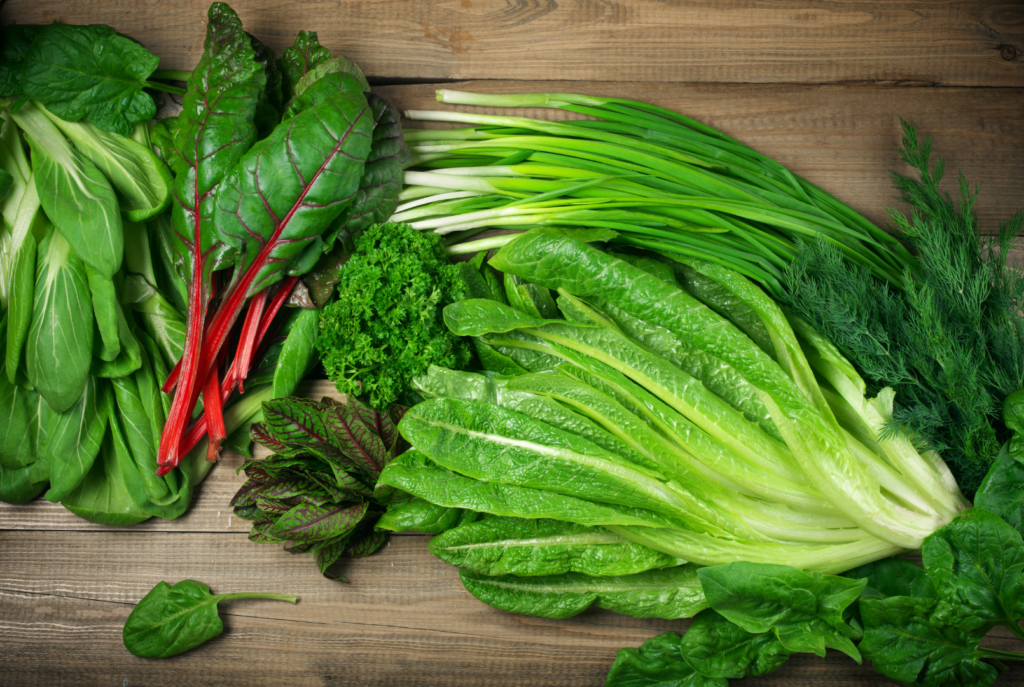
Leafy greens like spinach and kale are excellent for brain health. They have folate which helps the body make serotonin. Serotonin is the chemical that keeps your mood balanced. When I include greens in my meals I feel more steady and focused. They are simple foods that can help reduce stress in an easy way.
Whole Grains
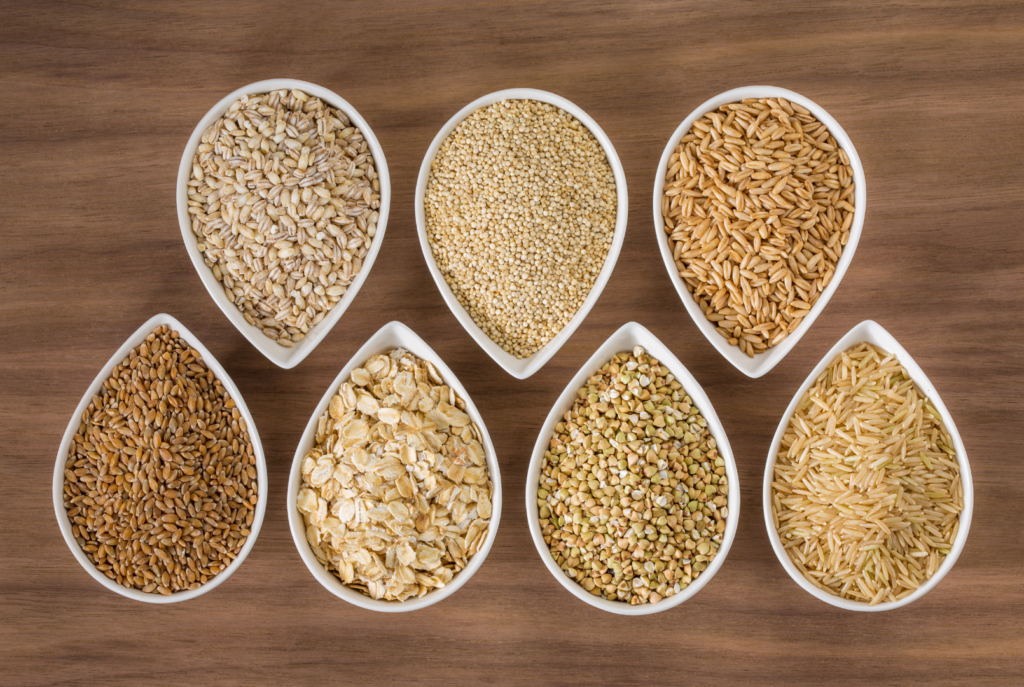
Whole grains like oats and brown rice give the body steady energy. They help increase serotonin and support stable blood sugar levels. When blood sugar stays steady your mind stays calm. I always see good results when clients switch from refined grains to whole grains.
Get an Extra 10% Off – Fill out the Form Below!
Herbal Tea
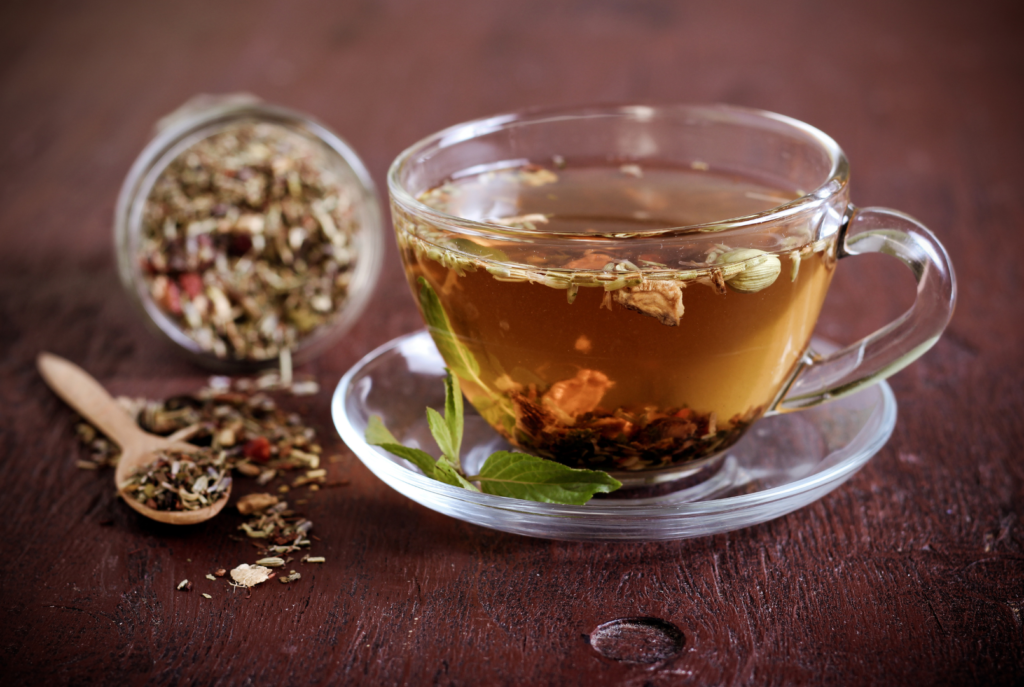
Herbal teas like chamomile and peppermint have a natural calming effect. Chamomile can help reduce anxiety and support better sleep. In the evening I love drinking warm herbal tea to relax my mind. It is a simple habit that can support your overall stress management.
Fermented Foods

Fermented foods like yogurt kefir and kimchi support gut health. A healthy gut helps the brain work better because of the strong link between gut and mind. When the gut stays healthy the mood stays more stable. I often see that people with good gut health feel less stressed.
Citrus Fruits

Citrus fruits like oranges and lemons are rich in vitamin C. This vitamin helps lower cortisol. Their fresh smell and taste also help lift the mood. I include citrus fruits in my diet almost daily because they support my immunity and help me feel fresh.
Eggs

Eggs are full of protein and B vitamins that support brain function. These nutrients help manage mood and energy. I love having eggs in breakfast because they keep me full and focused. They are simple and powerful foods that help reduce stress naturally.
Dietitian’s Desk
Adding these foods to your daily diet is an easy way to support your mental health. When you choose the right food your body becomes strong and your mind becomes calm. I always remind my clients that stress is not only an emotional issue. It is also linked to what we eat every day. When you eat to reduce stress your body gets the support it needs to stay steady. Foods like dark chocolate fatty fish avocados and berries nourish your mind and give you the strength to handle stressful situations.
Nutrition plays a key role in emotional health. You can also watch my video on natural stress relief if you want simple steps to improve your mood in a healthy way.
FAQs
What role does diet play in managing stress?
Diet plays a crucial role in managing stress by providing the nutrients necessary to support brain function, regulate mood, and stabilize blood sugar levels. Certain foods, rich in vitamins, minerals, and antioxidants, can help reduce the physiological effects of stress and promote a sense of well-being.
How do omega-3 fatty acids in fatty fish help reduce stress?
Omega-3 fatty acids, found in fatty fish like salmon and mackerel, have anti-inflammatory properties that support brain health. These fats help reduce anxiety, depression, and stress by promoting healthy brain function and regulating mood.
Why are dark chocolate and berries considered good for stress relief?
Dark chocolate contains flavonoids that help reduce cortisol, the stress hormone, while improving blood flow to the brain, which can boost mood. Berries, rich in antioxidants and vitamin C, help lower cortisol levels and combat oxidative stress, promoting a sense of calm.
How does magnesium in nuts and seeds help with stress?
Magnesium, found in nuts and seeds, helps relax muscles and calm the nervous system, making it essential for stress management. It plays a key role in regulating stress levels by supporting relaxation and reducing anxiety.
Can citrus fruits help reduce stress?
Yes, citrus fruits like oranges and lemons are high in vitamin C, which helps lower cortisol levels and reduce stress. Additionally, the refreshing taste and aroma of citrus fruits can have a mood-lifting effect.
Why are whole grains recommended for managing stress?
Whole grains, such as brown rice and oats, provide complex carbohydrates that boost serotonin production, a neurotransmitter responsible for promoting feelings of well-being. Stabilizing blood sugar levels through whole grains can help prevent mood swings and stress.
How do fermented foods improve stress management?
Fermented foods like yogurt, kefir, and sauerkraut contain probiotics that promote gut health. A healthy gut is linked to improved mental health, as gut bacteria can influence brain function, mood regulation, and stress levels.
Can herbal teas really help reduce stress?
Yes, herbal teas like chamomile, lavender, and peppermint have calming effects that help soothe the mind and body. Chamomile tea, in particular, has been shown to reduce anxiety and promote better sleep, which can lower stress levels.
How do avocados contribute to stress reduction?
Avocados are rich in healthy fats, B vitamins, and potassium, all of which help regulate blood pressure and support brain health. These nutrients play a vital role in managing stress and improving mood.
What are the best times to eat stress-relieving foods?
Stress-relieving foods can be eaten throughout the day to maintain balanced energy levels and mood. Incorporating them into meals or snacks during times of high stress—such as before work, after a long day, or before bedtime—can be particularly beneficial in reducing stress.

🎯 10+ years of Experience
🎓 10k+ Trained ( 📍 Jaipur )
💪 Helping change people’s lives
🌿 Most trusted lifestyle counselor
